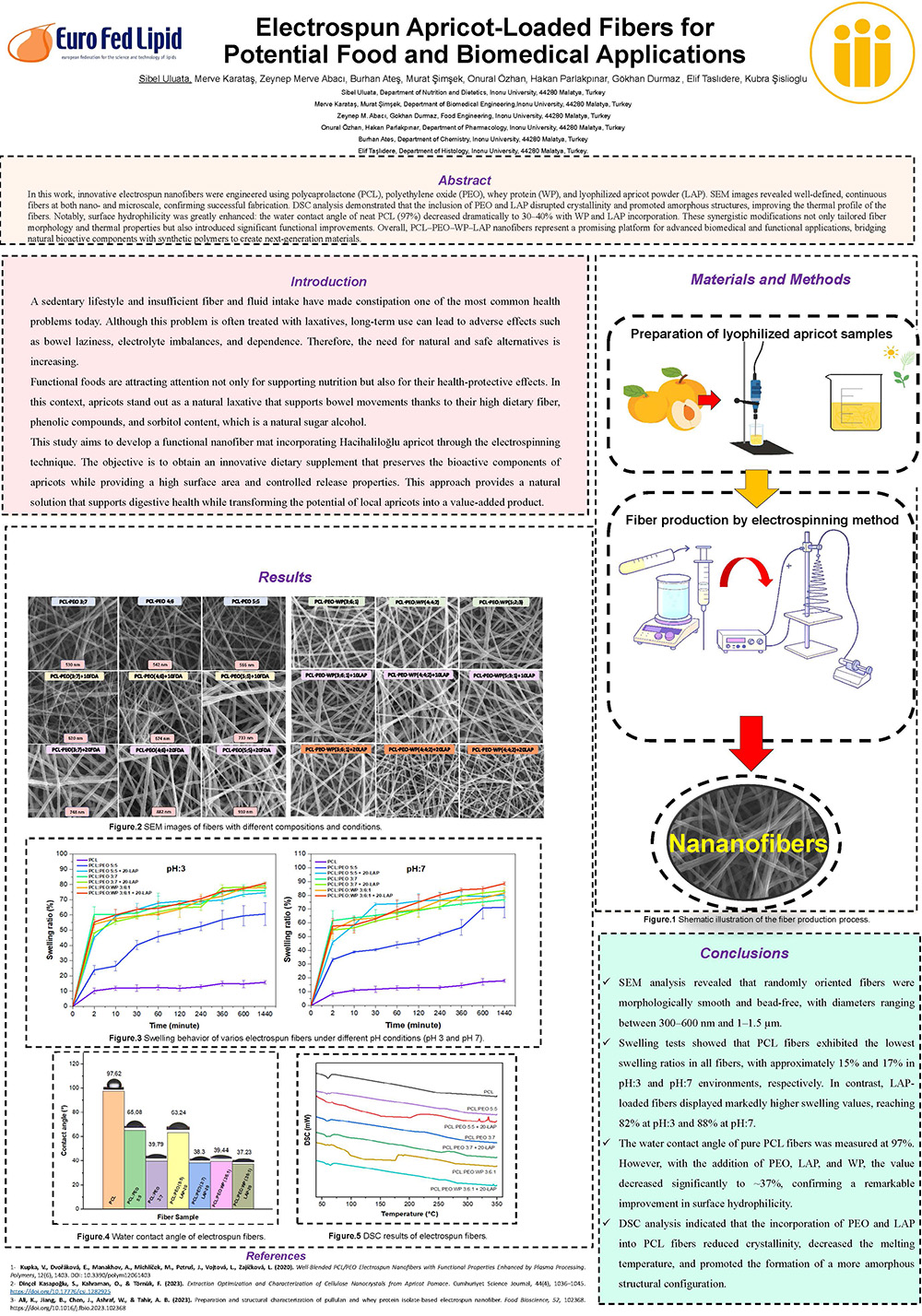Nowadays, acute and chronic constipation has become a common health problem due to sedentary lifestyles and inadequate fiber and fluid intake. Laxatives are widely used to remedy this problem, but long-term use of these drugs can cause various side effects. In this context, it is important to develop foods with natural laxative properties in the form of dietary supplements.
Apricot has high fiber and sorbitol content, and it shows laxative effect by supporting bowel motility. The main objective of this study is to develop a new functional product in the form of nanofibers by electrospinning method using Hacihaliloglu apricot variety grown in Malatya. In the study, lyophilised apricot powder (LAP) was encapsulated in different nanofibres such as whey protein (WPI) polyethylene oxide (PEO/PEG), polycaprolactone (PCL). The produced nanofibers were examined morphologically by scanning electron microscopy (SEM) and their mechanical properties such as liquid contact angle and swelling capacity were determined. According to the results of SEM, morphologically smooth and bead-free fibers with a diameter range of 300-600 nm and 1-1.5 µm were produced in random order. As a result of the swelling test performed for 24 hours in pH 3 and pH 7 environment, it was observed that the highest swelling amount was PEO:PCL:WP (6:3:1) + 20% LAP coded fiber sample and its volume increased up to 4 times. When the contact angle of the fibers produced was examined, it was seen that the samples with added lyophilized apricot powder had an increased interest in water compared to the samples. As a result of the study, nanofibers containing lyophilized apricot powder has smooth morhopology and high water holding capacity.
This study was supported by Inonu University Scientific Projects Units and Project number:2021-2953
